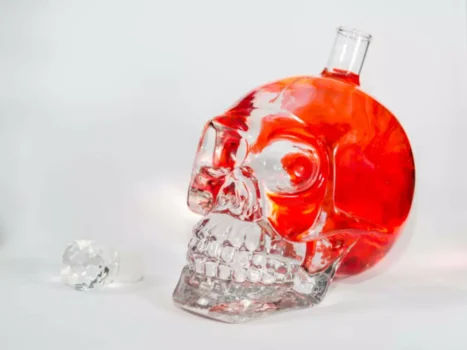
In conclusion, psychedelic therapy for addiction represents a bold new frontier in mental health treatment. But for those who have struggled with addiction, it offers a glimmer of hope – a chance to see their world, and themselves, in a new light. The term “classic psychedelics” is used by researchers to refer to a family of chemically-similar drugs, called tryptamines, that includes psilocybin, lysergic acid diethylamide (LSD), dimethyltryptamine (DMT) and mescaline (the psychoactive component of peyote). These compounds are distinct from compounds like ketamine and phencyclidine (PCP), which are sometimes referred to as psychedelics but have an entirely different mechanism of action.

Spravato Side Effects to Know About
Subsequently, Health Canada granted exemption to 16 healthcare professionals to take psilocybin themselves for personal training (Dubinski, 2020), which is indicative of a rapidly growing infrastructure for psilocybin-assisted therapy in Canada. In contrast, people who had used psychedelics were less likely to have required mental health treatment in the past year than those who had not. The evidence for serious adverse events remains low and recent RCTs using psychedelics in various non-psychotic psychiatric disorders are are psychedelics addictive showing good evidence for both safety and efficacy (Carhart-Harris et al., 2021; Palhano-Fontes et al., 2019). Psychedelic-assisted therapy—or ketamine-assisted therapy, if that substance is used—is when the use of psychedelic or dissociative drugs is integrated with other treatments, mainly talk therapy. Though more research is needed, scientists theorize that these substances promote brain changes that have the potential to promote healthy thought patterns,13 potentially supporting the effectiveness of talk therapy.
How Do Hallucinogens Affect the Brain?
The manufacturer is currently seeking new-drug approval from the FDA for MDMA-assisted psychotherapy.. MDMA is not a classic psychedelic, but it influences the release of serotonin and other neurotransmitters and alters perception. Studies indicate that MDMA reduces hyperactivity in the amygdala and increases connectivity https://ecosoberhouse.com/ between the amygdala and the hippocampus so that memories can be processed and safely stored without constantly intruding on the present. MDMA also releases the hormone oxytocin, boosting the sense of social connectedness. MDMA is also being tested for use as a treatment for depression, anxiety, and substance use.
Hallucinogen Persisting Perception Disorder (HPPD)
Since the 1970s, psychedelic substances have been illegal in the U.S. But starting the 1990s, at first quietly, then openly, medical interest in psychedelics has been resurgent. Renewed interest in the healing properties of such agents has led to the so-called “psychedelic renaissance,” in which many such substances are being studied for a wide range of conditions. Psilocybin may also be helpful in the treatment of depression and anxiety when these mental health conditions are specifically linked to life threatening diseases, according to a 2020 systematic review and meta-analyses of clinical trials in Biomedicines. These risks are greater when drugs are used in unsupervised settings.

Anderson has a brother who is living homeless in Dallas, in part because of an opioid habit, and Rob is a retired Special Operations veteran with combat-related TBI. Their investigation, which they undertook pro bono, revealed financial links between those who opposed the ibogaine proposal and the opioid disorder treatment industry. Hubbard came to regard ibogaine as a potential solution for addictions. More than that, he saw a powerful substance capable of healing the “profound spiritual affliction” that he believes is at the core of what drives most people to reach for the pill bottle or needle.
Psilocybin (Magic Mushrooms)
- Ketamine is also controlled under the same act and listed as a Schedule III drug.
- The goal is to prevent the user from harming themselves or others due to their altered mental state.
- Mash pleaded for more evidence-based research that could lead to regulatory approval and make such treatments safely available to those who are “suffering the most.” So far, what researchers have is anecdotal.
- NIDA is a biomedical research organization and does not provide personalized medical advice, treatment, counseling, or legal consultation.


